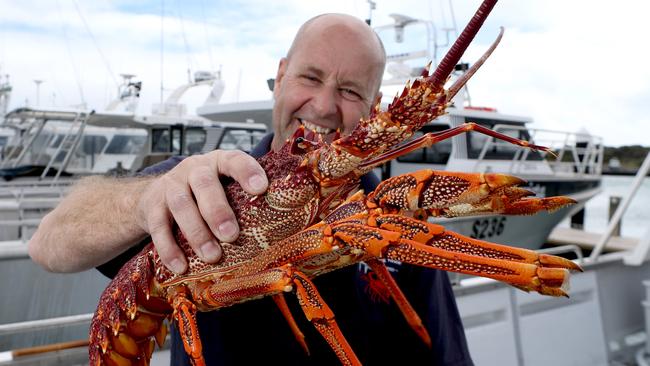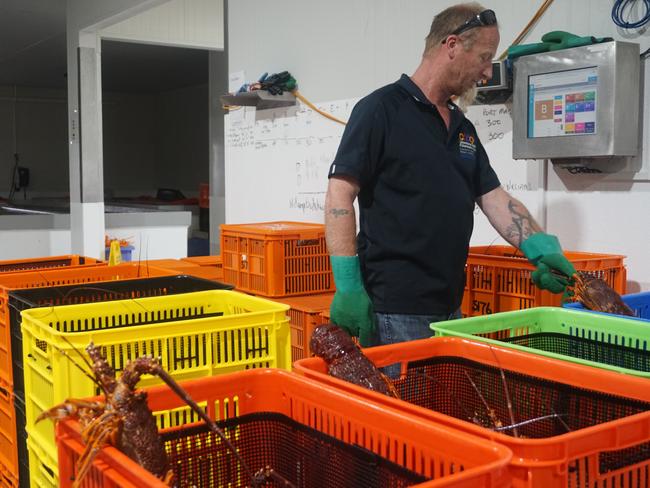Southern rock lobster fishing seasons extended in SA
The government has made changes to the southern rock lobster fishing seasons – as the Premier said he would push for the easing of trade restrictions when he leads a delegation to China.
SA News
Don't miss out on the headlines from SA News. Followed categories will be added to My News.
Changes to southern rock lobster season dates in the state’s two fishing zones are aimed to give South Australian commercial fishers greater flexibility to access international markets.
Premier Peter Malinauskas announced the changes on Wednesday at the Trans-Tasman Lobster Conference, which is being held in Adelaide for the first time since 2007.

The current temporary arrangement for the northern zone, to permit fishing all year round, will become permanent from September 1, 2024.
Commencement of the Southern Zone season, which has traditionally been October 1, will be brought forward to September 1 from this year.
Mr Malinauskas said the rock lobster industry was a significant part of SA’s global identity as “a destination for premium seafood” and produce.
“These sensible changes to support the industry are backed by the science, and allow for greater flexibility and market access, whilst maintaining the sustainability of the rock lobster,” he said.
This will provide fishers with additional time to catch their allocated quota and better
align catch timings and supply with export market demand.

The Premier also said he would advocate for the easing of trade restrictions when he leads a September business delegation to China, which previously accounted for up to 95 per cent of the state’s rock lobster export market.
The rock lobster industry contributes more than 30 per cent of SA’s seafood gross product worth $158.5 million, and creates more than 1300 jobs through direct and flow-on business, many in regional areas.
In response to Chinese trade sanctions and the Covid pandemic, the state government halved rock lobster licence fees last year.
Advice from the SA Research and Development Institute (SARDI) indicated the shift in season length did not pose a threat to stock sustainability as the total allowable commercial catch limit would not change.





